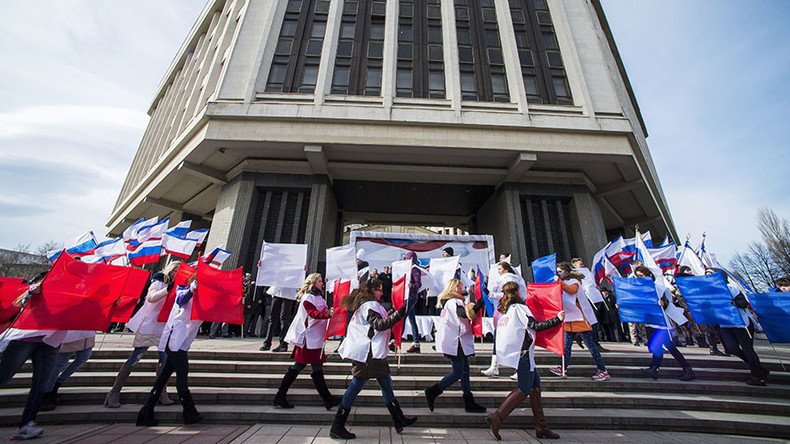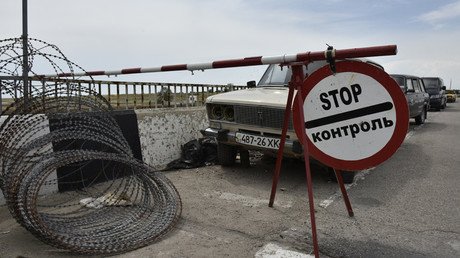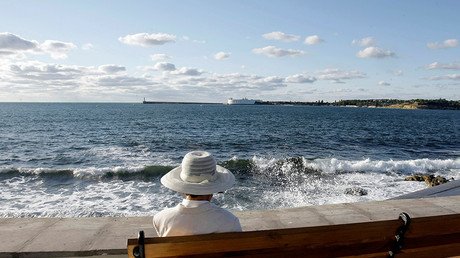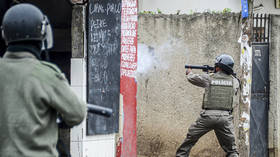'Playing along': Crimean official dismisses Turkey’s statement in support of Ukraine

A senior Republic of Crimea official has dismissed the Turkish president’s statement supporting ‘the territorial integrity of Ukraine’, describing it as a manifestation of ‘political flexibility’ & noting that it cannot affect Crimea’s current status.
“A demand for this was demonstrated primarily by [Ukrainian President Petro] Poroshenko. [Turkish President Recep Tayyip] Erdoğan was simply playing along,” Deputy Prime Minister of the Crimean government Georgiy Muradov said in an interview with RT.
“We can see from Erdoğan’s other trips and meetings that he is not very fond of making such statements on his own initiative. He simply needed to keep afloat what is left of relations between Turkey and Ukraine,” Muradov added.
The comment came on Monday during President Erdoğan’s official visit to Kiev, when he said that Turkey will continue to support Ukraine's sovereignty and territorial integrity.
Muradov said that by this statement Erdoğan demonstrated political flexibility that is necessary in diplomacy, but it could not hide the fact that the relations between Ukraine and Turkey are in crisis. He noted that even Crimean Tatars now living in Turkey demonstrate their support of Crimea’s reunification with Russia and this simply cannot be left unnoticed. In conclusion, the Crimean deputy PM emphasized that Erdoğan’s statement would not have any effect of the status of the republic.
The head of the Russian Upper House Commission for Information Policy Senator Aleksey Pushkov expressed a similar opinion in a Twitter statement. “Whether Erdoğan recognizes that Crimea belongs to Russia or not is not likely to change Crimea’s status. He knows that, and he simply says what Poroshenko likes to hear,” he wrote.
The Crimean Republic reunited with the Russian Federation in mid-2014, after over 96 percent of its population approved the move in a referendum. The decision was prompted by the ouster of the democratically-elected president of Ukraine in a violent coup in Kiev, and the installation of a nationalist-backed government that almost immediately declared war on pro-Russia regions in the country’s southeast which had refused to recognize the newly-imposed leadership.














